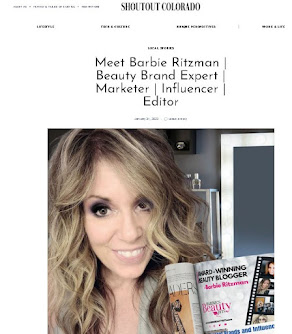Breast Lift Before And After A Comparison of Different Techniques And Their Results
Are you considering breast lift surgery? Well, you are not alone. Breast lift surgery has become increasingly popular over the years, with recent data from the American Society of Plastic Surgeons (ASAPS) showing that the procedure has grown over 70% since 2000, surpassing breast implants by two to one.
Many women opt for this cosmetic procedure to enhance the shape and appearance of their sagging breasts, which can result from post-pregnancy body changes, weight fluctuations, or the natural aging process. As women age, they may become self-conscious about their breasts due to the loss of skin elasticity and their natural shape.
During the procedure, excess skin is removed, and the surrounding tissue is tightened, resulting in a more youthful and lifted appearance. If you're considering a breast lift surgery, you've come to the right place. I recently spoke with a plastic surgeon specialist to discuss the different breast lift techniques and what you can expect before and after the procedure. Read on to find out more, so you can love your boobs!
Traditional Breast Lift Surgery
The traditional breast lift technique, also known as the anchor or inverted T method, is the most used surgical approach for breast lifts. It involves making a cut around the areola, extending vertically down to the breast crease and horizontally along the breast fold.
It allows for a significant amount of excess skin removal and reshaping of the breast tissue. If you are considering a breast lift, it is vital to consult with a skilled and experienced breast lift surgeon to ensure optimal results.
Before The T Method Breast Lift Surgery
Patients usually have excessively sagging breasts with nipples pointing downwards. They may also have stretched-out areolas or asymmetrical breasts.
Results After The T Method Breast Lift
Patients can expect to have lifted and more youthful-looking breasts with nipples pointing forward. The areolas will also be resized and repositioned to match the new breast shape.
Crescent Breast Lift Procedure
The crescent breast lift technique is a minimally invasive option that is suitable for people with mild breast sagging. It involves making an incision around the upper portion of the areola and removing a crescent-shaped section of skin. This procedure adds volume and firmness to the breasts while lifting the nipple to a more youthful position.
This approach is typically combined with breast augmentation for individuals who want to enhance their breast size along with the lift.
Before The Crescent Breast Lift Surgery
Patients considering a crescent lift have mild sagging of the breasts. But still desire a slight improvement in shape and position.
After The Crescent Breast Lift
Patients can expect to have breasts that are slightly lifted and reshaped. It results in a more symmetrical breast appearance. The areolas may be resized and repositioned with minimal scarring.
Vertical Breast Lift Surgery
The vertical lift technique, known as the lollipop or keyhole method, involves making a single cut around the areola and extending vertically down to the breast crease. It allows for moderate skin removal and reshaping of the breast tissue.
Before The Vertical Breast Lift Surgery
Patients with moderate sagging of the breasts are good candidates for a vertical lift. They may also have stretched-out areolas or downward-pointing nipples.
After The Vertical Breast Lift
Patients can expect to have lifted and more shapely breasts with minimal scarring. The areolas will also be resized and repositioned for a more symmetrical appearance.
Lollipop Breast Lift Procedure
The lollipop lift is a variation of the vertical lift technique, where an additional horizontal cut is made along the breast crease. It allows for more skin removal and reshaping of the breasts.
Before Lollipop Breast Lift Surgery
Patients with moderate to severe sagging of the breasts are good candidates for a lollipop lift. They may also have stretched-out areolas or downward-pointing nipples.
After: Lollipop Breast Lift Results
Patients can expect to have lifted and more shapely breasts with minimal scarring. The areolas will also be resized and repositioned for a more symmetrical appearance.
Your Breast Lift's Perfect Partner-in-Crime - Honeylove’s Crossover Bra
After you ditch the post opp bra, finding the perfect fitting bra becomes an empowering quest. It's all about embracing the new contours and ensuring comfort and support. A well-fitted bra not only complements the enhanced shape but also provides the necessary support during the healing process.
Think of the Honeylove’s Crossover Bra as your breasts' new BFF! With adjustable features and a supportive design, this bra not only looks great on its own but also flatters your body. The best part is that it is incredibly comfortable. Wearing the right bra can boost your confidence, promote healing, and provide comfort, allowing you to enjoy your new silhouette with grace and ease.
Learning Different Techniques for a Breast Lift Before and After the Result
Different breast lift techniques offer unique benefits for varying degrees of breast sagging. Each technique delivers remarkable transformations, enhancing both breast shape and position.
The breast lift before and after effects are significant. It results in more symmetrical and youthful-looking breasts. Remember, consulting an experienced surgeon is crucial for optimal outcomes.
Did you find this article helpful? If so, check out Barbies Beauty Bits news for more cosmetic treatment and surgery tips.
Breast Lift Before And After A Comparison of Different Techniques And Their Results Are you considering breast lift surgery? Well, you are ...











